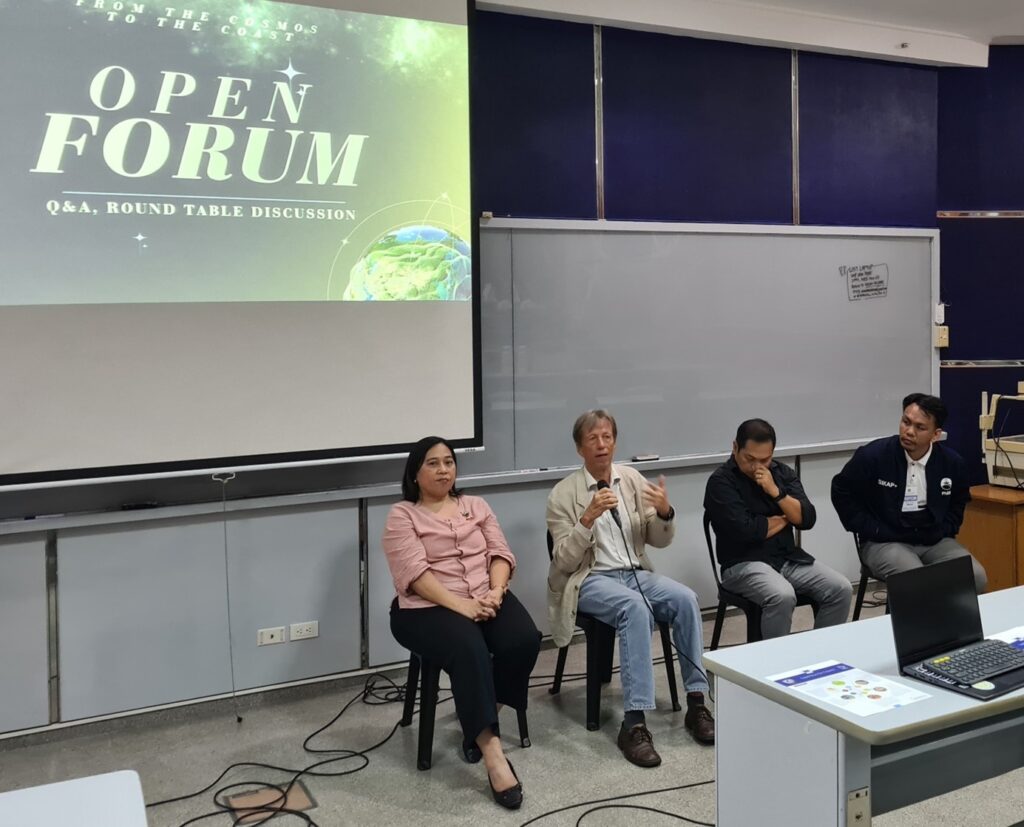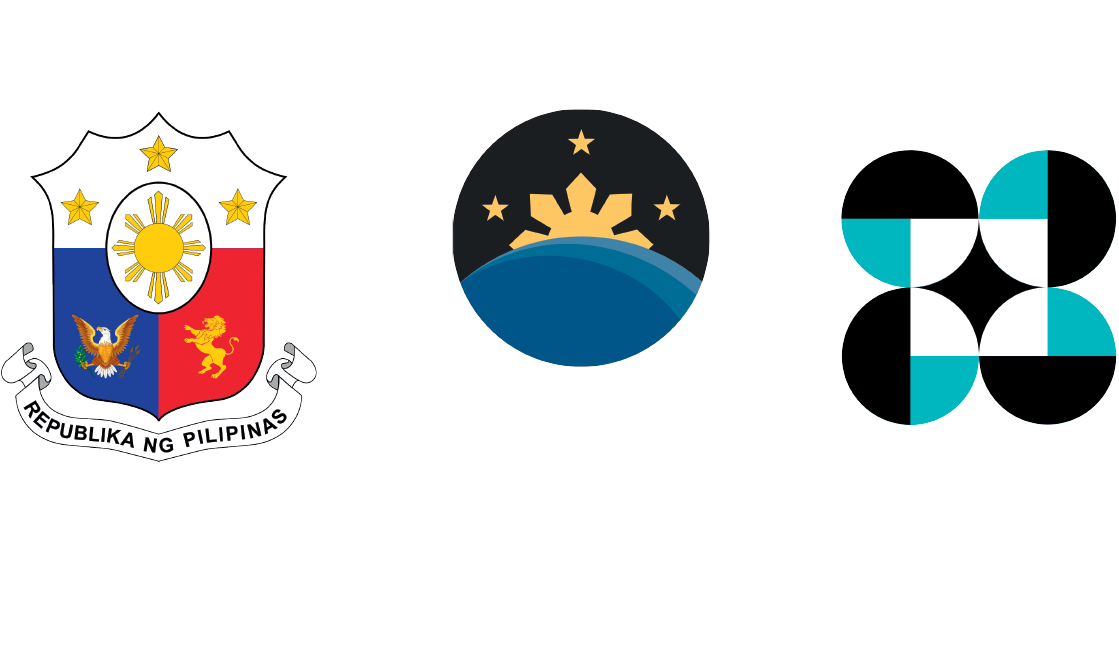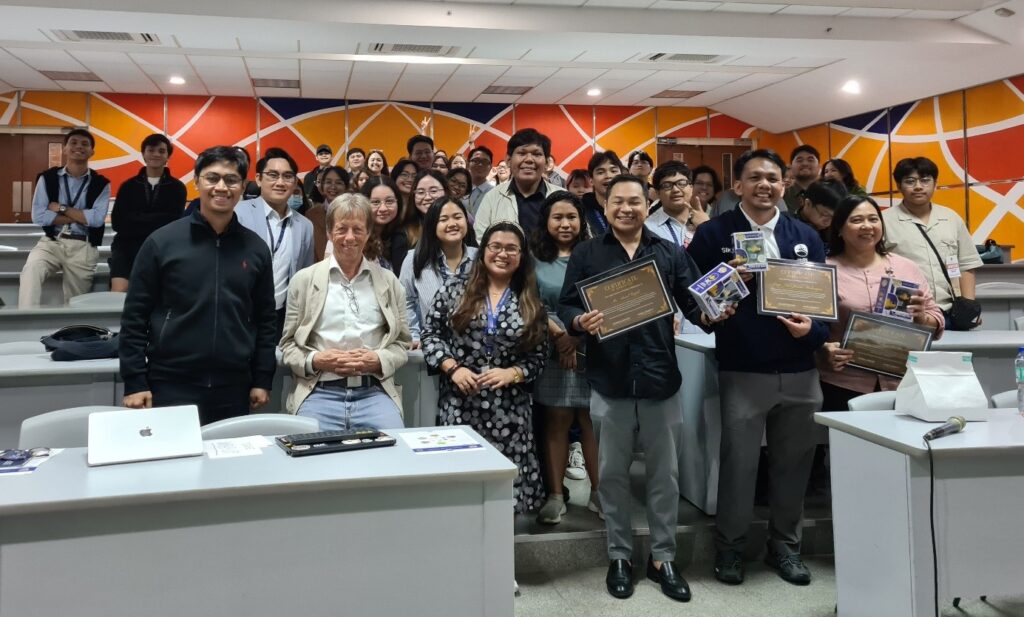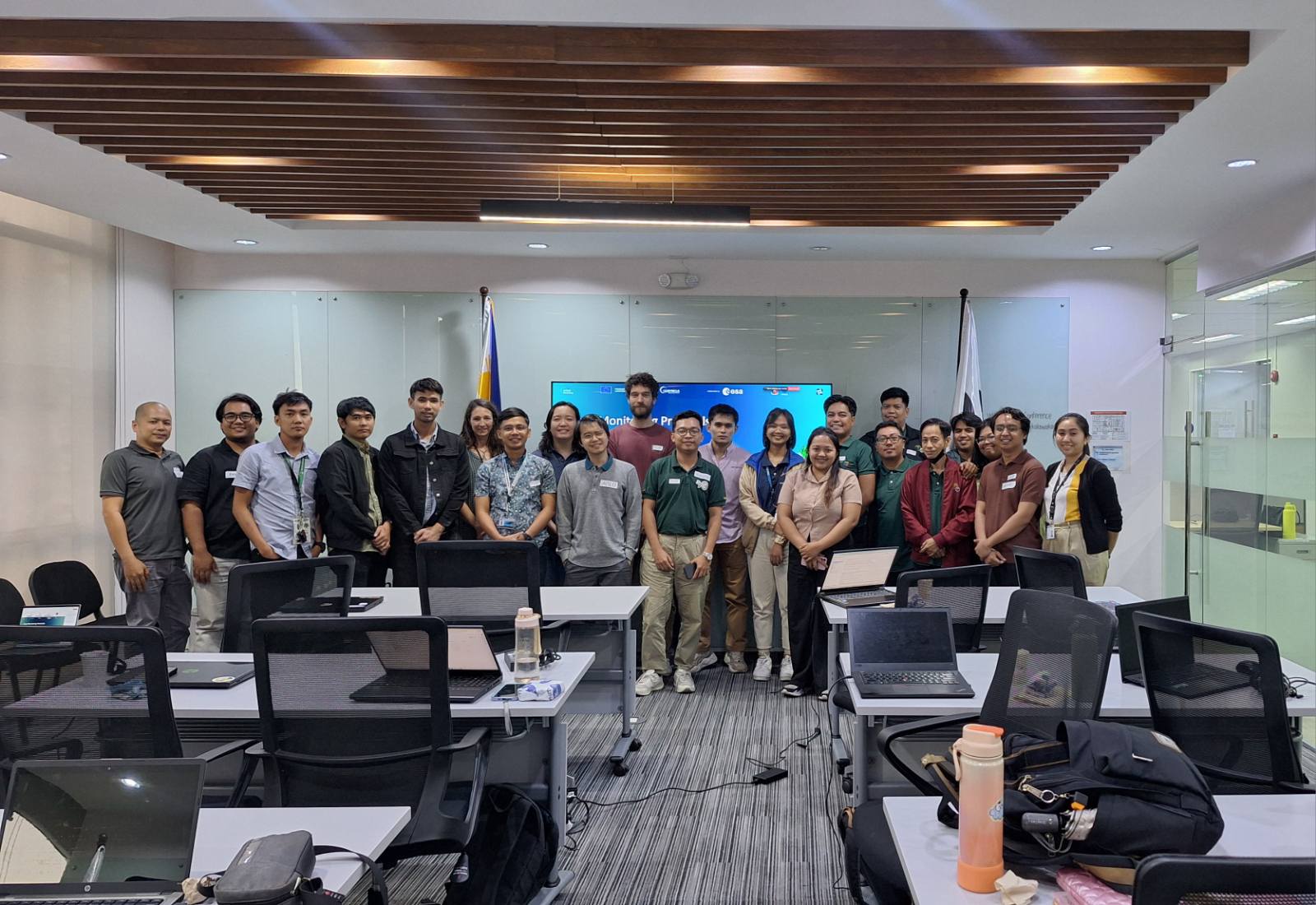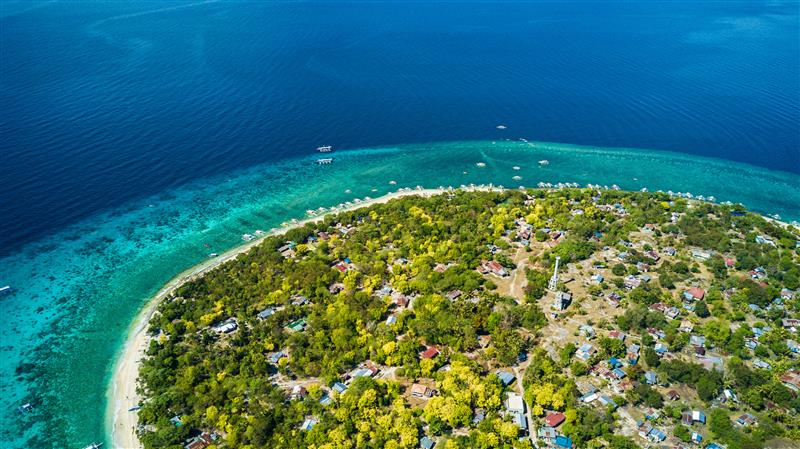On 29 November 2024, the CopPhil Technical Assistance participated in an information session on space technology and Disaster Risk Reduction and Management for students of the Ateneo de Manila University.
As a component of the EU Copernicus programme in the Philippines, one of the core objectives of the CopPhil Technical Assistance is to reduce disaster risks in the Philippines using satellite data while increasing public awareness of the benefits of Earth observation. The EU also prioritises the potential of youth to engage and connect with the EU’s activities, including the Copernicus programme that provides scholarships and skill-building opportunities for young scientists. To this end, the student forum organised by the Ateneo University entitled “From the Cosmos to the Coast: Utilizing Space Technology in the Reduction of Disaster Risk and Preparedness in the Philippines” presented a great opportunity for the CopPhil Technical Assistance, represented by expert Olaf Neussner, to discuss the potential of space technology in Philippine Disaster Risk Reduction and Management (DRRM) together with the students.
Approximately 50 students from the social and natural sciences departments of Ateneo participated in the event as part of their European Studies – International Relations curriculum. The presentation and dialogue covered various topics, including an often-overlooked aspect of Earth observation in long-term disaster response and management. While Earth observation aids in providing data following extreme natural events, such as typhoons, helping first responders achieve situational awareness and target aid to the most affected areas, risk reduction is a longer-term process that begins with comprehensive risk assessments. These assessments require extensive data on hazards, exposure, and vulnerabilities, and satellite Earth observation offers a practical and cost-effective way of gathering this information.
Eng. Noel Borlongan, Senior Science Research Specialist at the Philippine Space Agency (PhilSA), highlighted the wide range of services PhilSA offers in support of DRRM. Atty. Noelle Castillo, Director of Space Policy, Legal Affairs, and International Cooperation at PhilSA, explained the structure of space governance and the Philippines’ involvement in various international treaties and committees. Arnel Capili, Director of the Operations Center at the Philippine Disaster Resilience Foundation, shared his valuable insights into the role of space technology in disaster scenarios, including the use of satellite internet connections for communication during response operations.
The EU Copernicus programme in the Philippines plays a key role in enhancing the capabilities of Philippine Earth observation institutions and individuals, contributing to the improvement of these assessments. As young scientists and innovators are important for the future development of Earth observation, the team was delighted to engage in the dynamic conversation, discussing thought-provoking questions on how humanitarian organisations can maintain neutrality during disasters and how space agencies collaborate when earth observation data is urgently required.
